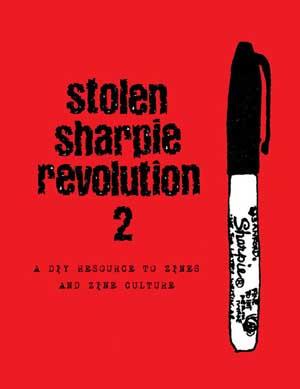Stolen Sharpie Revolution 2: A DIY Resource for Zines and Zine Culture

First published in 2002, Alex Wrekk’s Stolen Sharpie Revolution has served as a resource for untold numbers of people both in and outside of the zine community. For the uninitiated, zines (pronounced like the second half of "magazines") are self-published and usually photocopied booklets focused on an incredibly wide range of topics, from politics to how-to guides to personal essays.
One of the great things about zines is that anyone can make one; you could get started today without a guide and figure it out as you went along as I did a few years back after I picked up a free zine at a local show and became inspired to create my own. However, it certainly helps to have a place to go for practical instructions on things like page layout and postal regulations, creative ideas for zine assembly and presentation, and information on how to distribute your zine and connect with other zine writers. That’s all here, along with an extensive resource list comprising zine libraries, websites, annual zine events around the world, distros (zine distributors), and publications that review zines.
Unlike the majority of zines, Stolen Sharpie Revolution 2 is a bound book, although it's anything but a normal book on the inside. On most of the pages, paragraphs of typewritten text have been cut out and pasted on different patterned backgrounds, which Wrekk tells us are from the insides of security envelopes. Some of the tutorials provided by other people are typed on a computer or handwritten, with drawings included. Stolen Sharpie Revolution 2 isn’t the best example of a professional quality, self-published product; there are numerous misspellings and grammatical errors, and one page appears twice in a row, with the following page nowhere to be found. However, the guide successfully embodies the do-it-yourself ethic and community spirit of the zine world, and provides a comprehensive introduction to both the nuts and bolts of zinemaking and the workings and etiquette of the zine community as a whole. It’s a staple for every zinester’s bookshelf, and will delight and enlighten writers, artists, librarians, and educators.